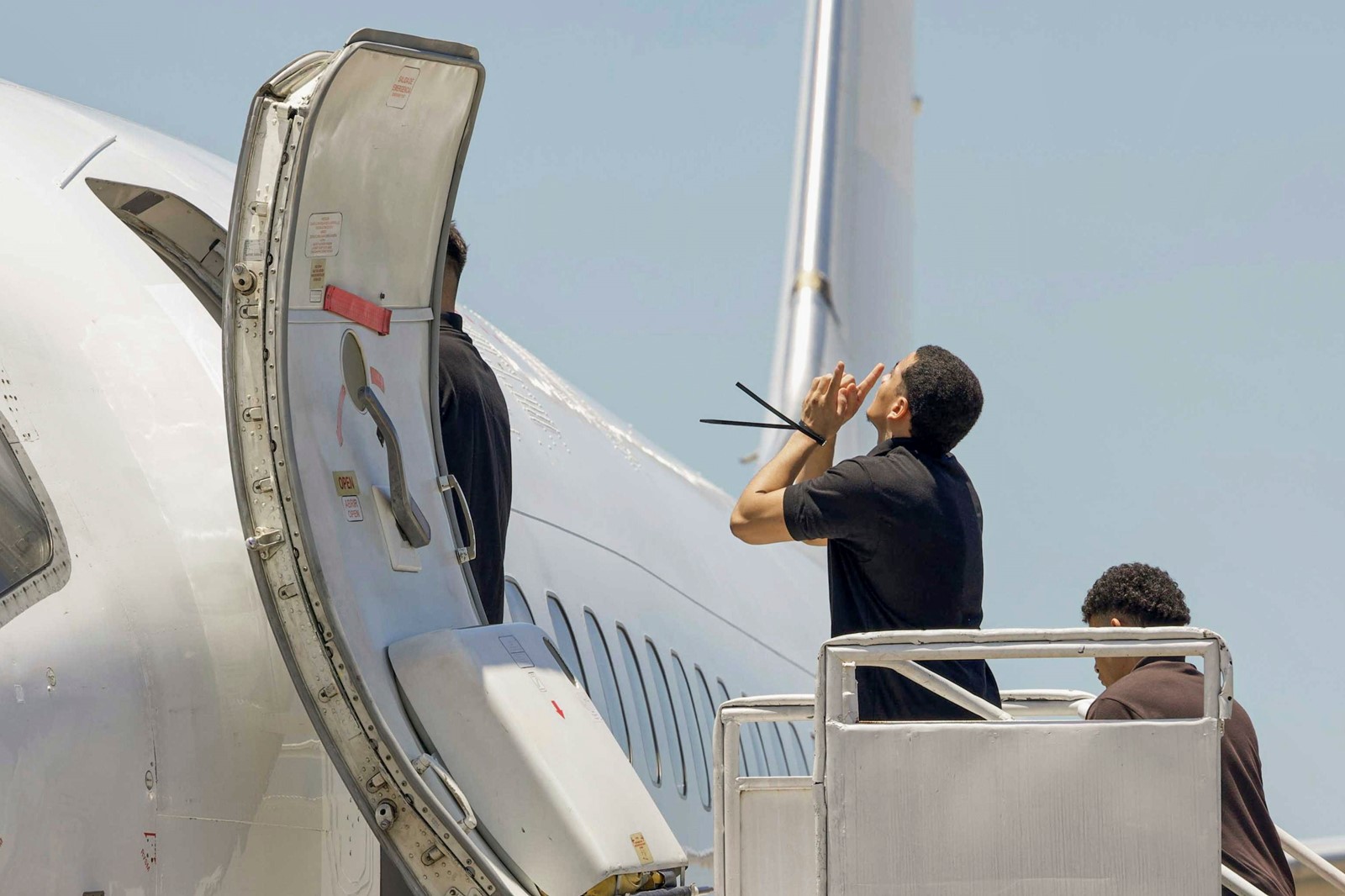CARACAS, Venezuela — Venezuela released 10 jailed Americans on Friday in exchange for getting home scores of migrants deported by the United States to El Salvador months ago under the Trump administration’s immigration crackdown, officials said.
The arrangement represents a diplomatic achievement for Venezuelan President Nicolás Maduro, helps President Donald Trump in his goal of bringing home Americans jailed abroad and lands El Salvador a swap that its president had proposed months ago.
“Every wrongfully detained American in Venezuela is now free and back in our homeland,” Secretary of State Marco Rubio said in a statement in which he thanked El Salvadoran President Nayib Bukele.
Bukele said his country had handed over all the Venezuelan nationals in its custody. The Venezuelan government said it had paid a “steep price” by having to release the U.S. nationals but was pleased to have its own jailed citizens back.
Central to the deal are the more than 250 Venezuelan migrants being freed by El Salvador, which in March agreed to a $6 million payment from the Trump administration to house them in a notorious Salvadoran prison.
The arrangement drew immediate blowback when Trump invoked an 18th century wartime law, the Alien Enemies Act, to quickly remove men his administration had accused of belonging to the violent Tren de Aragua street gang. The administration did not provide evidence to back those claims.
The Venezuelans have been held in a mega-prison known as the Terrorism Confinement Center, or CECOT, which was built to hold alleged gang members in Bukele’s war on the country’s gangs. Human rights groups have documented hundreds of deaths and cases of torture inside its walls.
Among the Americans freed Friday was 37-year-old Lucas Hunter, whose family says he was kidnapped in January by Venezuelan border guards from inside Colombia, where he was vacationing.
“We cannot wait to see him in person,” said his younger sister Sophie Hunter.
The release of the Venezuelans is an invaluable win for Maduro as he presses his efforts to assert himself as president despite credible evidence that he lost reelection last year. Long on the receiving end of accusations of human rights abuses, Maduro for months used the men’s detention in El Salvador to flip the script on the U.S. government, forcing even some of his strongest political opponents to agree with his condemnation.
The migrants’ return will allow Maduro to reaffirm support within his shrinking base, while it demonstrates that even if the Trump administration and other nations see him as an illegitimate president, he is still firmly in power.
The release comes just a week after the State Department reiterated its policy of shunning Maduro government officials and recognizing only the National Assembly elected in 2015.



 PREVIOUS ARTICLE
PREVIOUS ARTICLE
